Note

- the information symbol illuminates and the message The car key battery is low. See Owner's Manual for replacement. is displayed in the instrument panel
- signal reception repeatedly fails even when the key is within 20 meters (65 feet) from the vehicle.
Note
The battery in the smaller key without buttons1 (the Key Tag) cannot be replaced. A new key can be ordered from an authorized Volvo workshop.
Important
Opening the key and replacing the battery
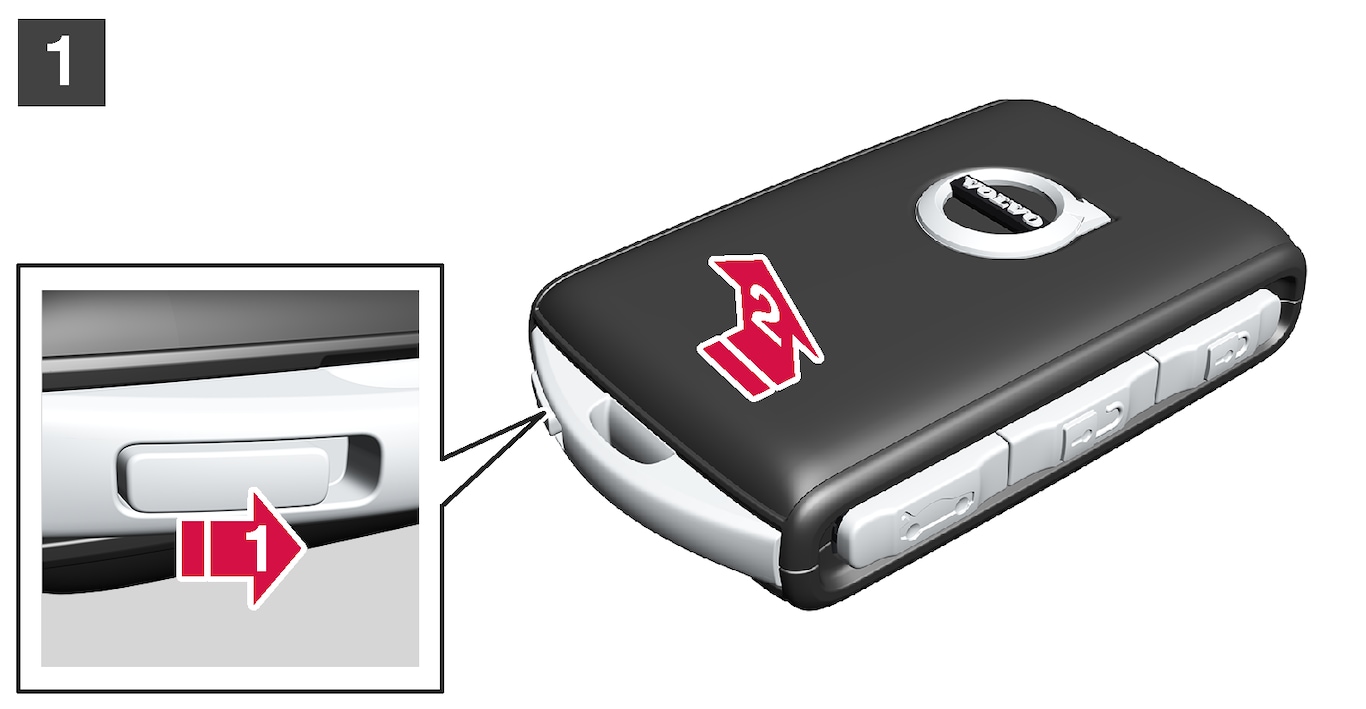

 Hold the key with the front side (with the Volvo logo) facing up and move the button on the key ring section to the right. Slide the front cover slightly upward.
Hold the key with the front side (with the Volvo logo) facing up and move the button on the key ring section to the right. Slide the front cover slightly upward.
 The cover will loosen and can be removed from the key.
The cover will loosen and can be removed from the key.
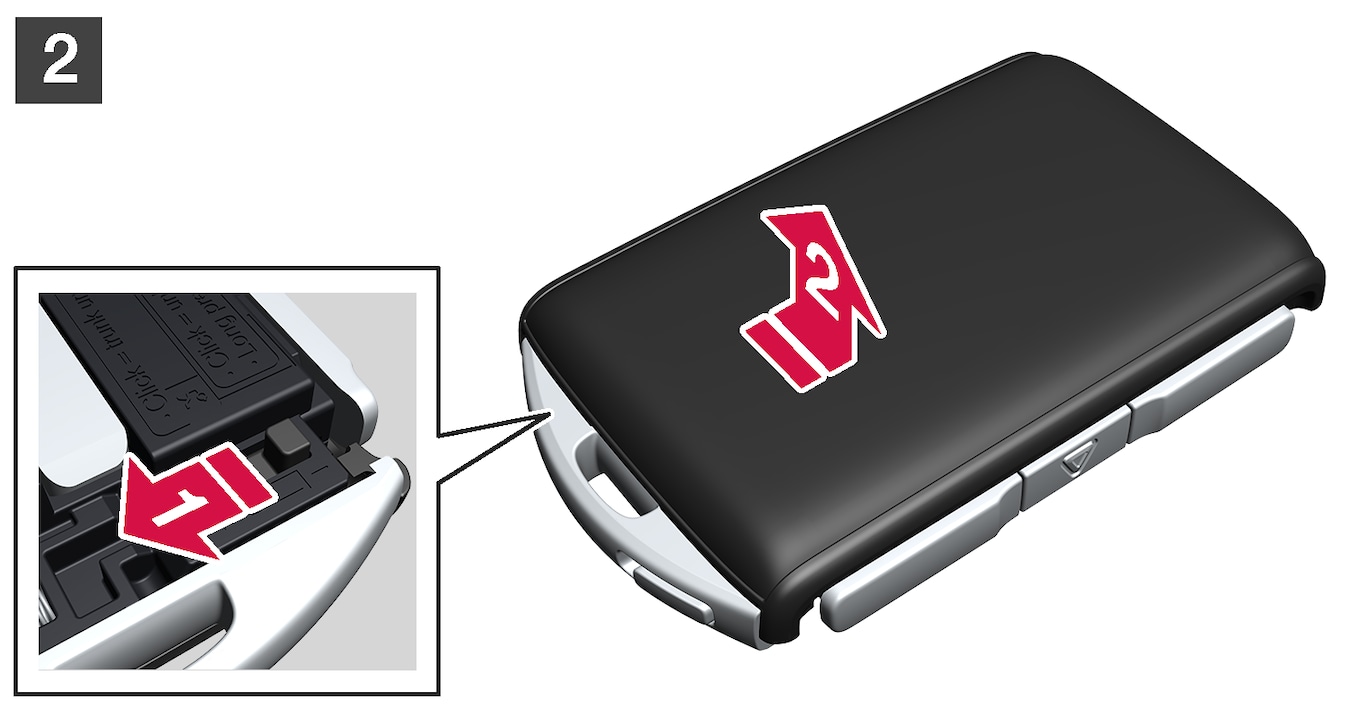

 Turn the key over, move the button to the side and slide the rear cover slightly upward.
Turn the key over, move the button to the side and slide the rear cover slightly upward.
 The cover will loosen and can be removed from the key.
The cover will loosen and can be removed from the key.
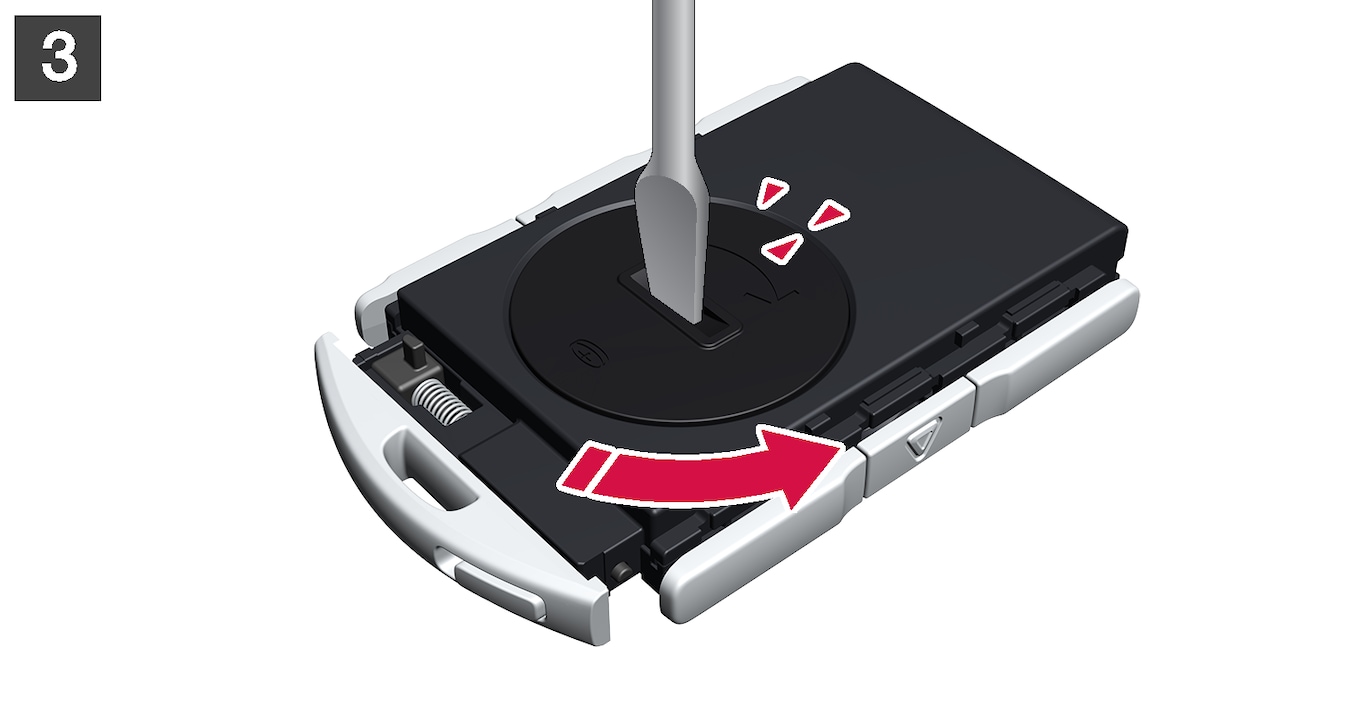

Use a screwdriver or similar object to turn the battery cover counterclockwise so the markers point to OPEN.
Remove the cover carefully by pressing e.g. a fingernail into the indentation.
Pry the cover up.
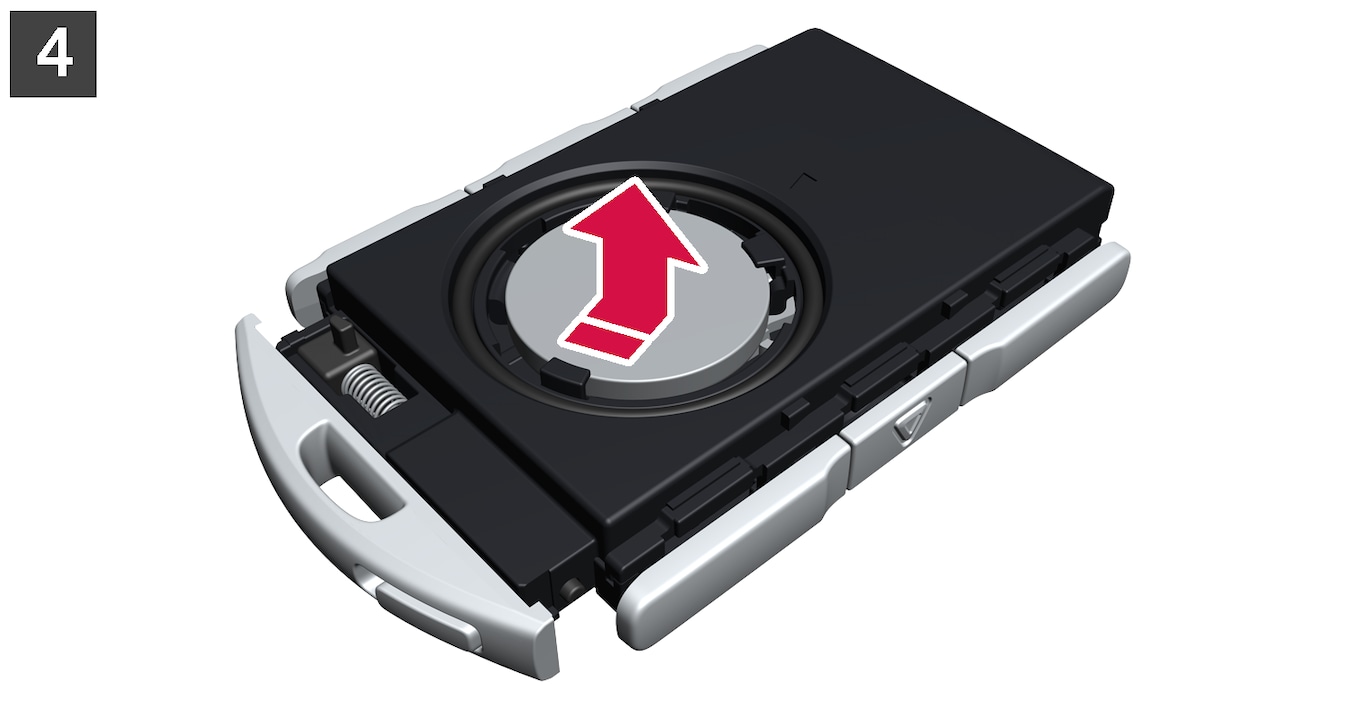

The battery's positive side (+) faces upward. Carefully pry out the battery as shown in the illustration.
Important
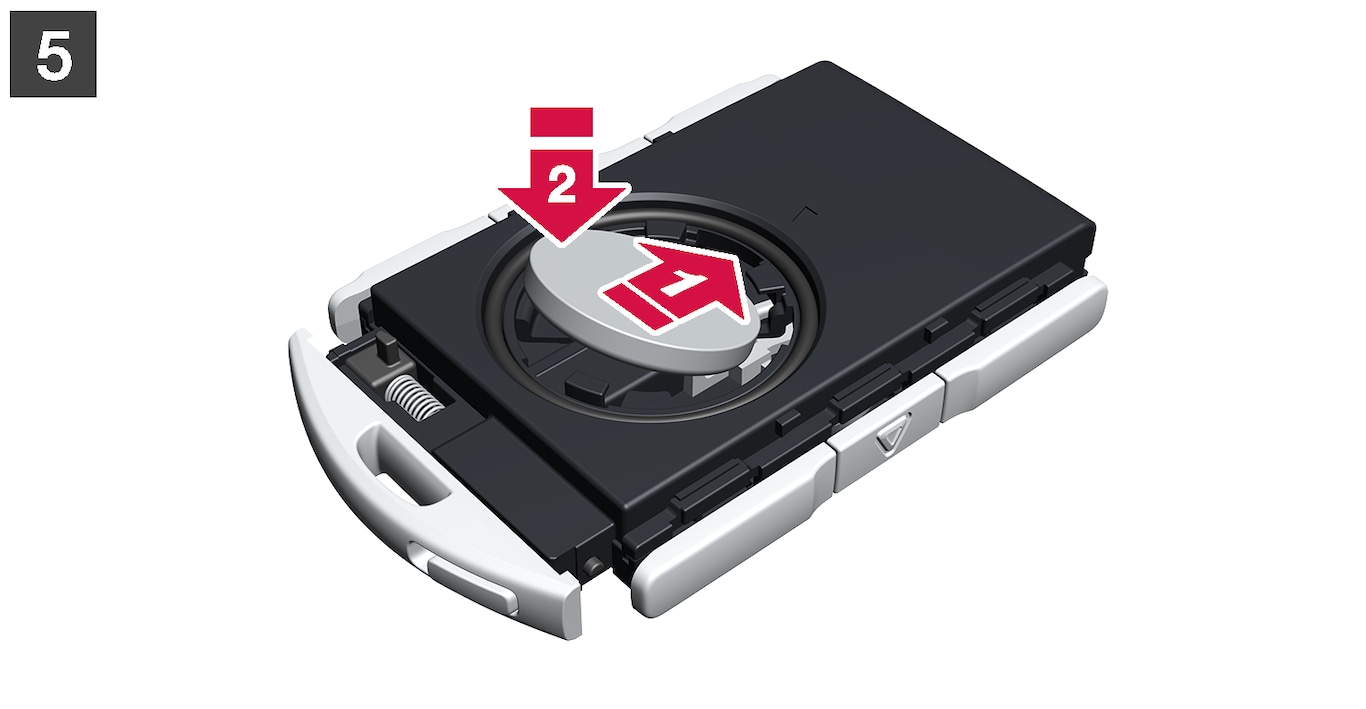

Insert a new battery with the positive side (+) facing upward. Do not touch the contact surfaces of the key battery.
 Place the edge of the battery downward into the holder. Slide the battery forward until it locks into place under the two plastic catches.
Place the edge of the battery downward into the holder. Slide the battery forward until it locks into place under the two plastic catches.
 Press the battery downward until it locks into place under the upper black plastic catch.
Press the battery downward until it locks into place under the upper black plastic catch.
Note
Note
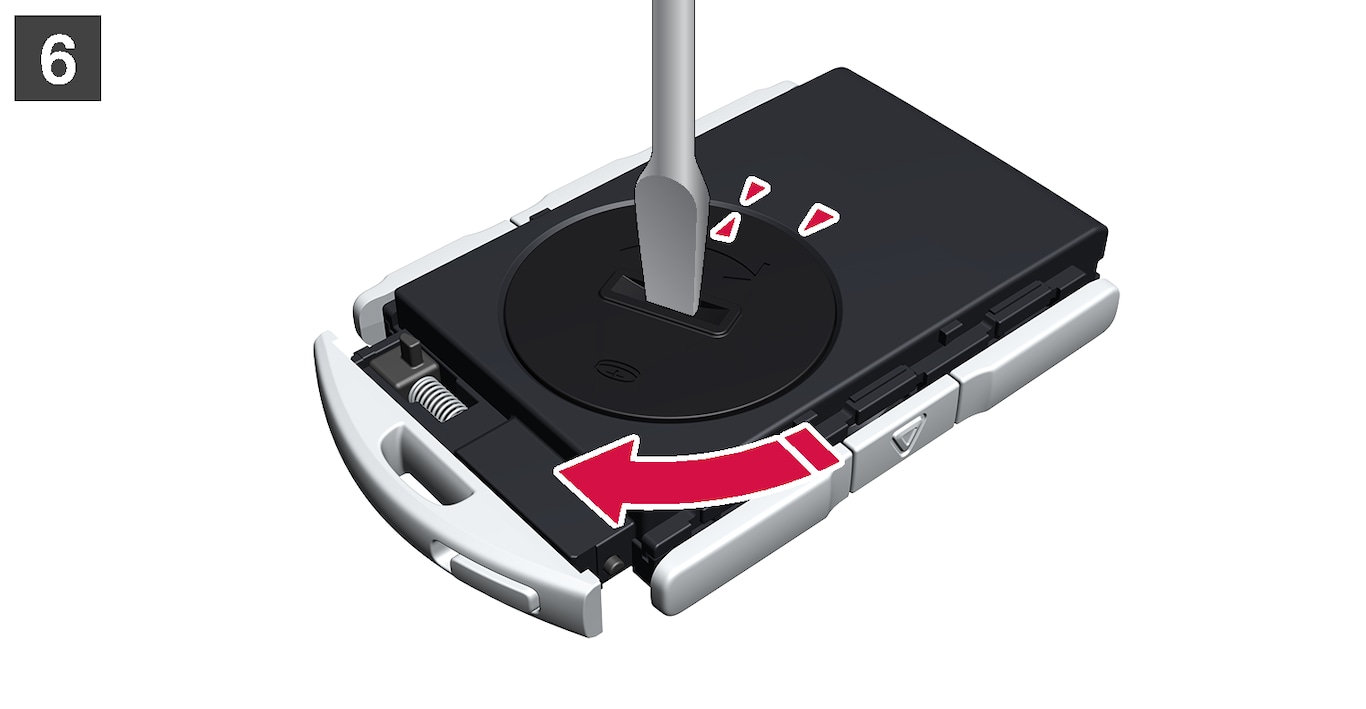

Replace the battery cover and turn it clockwise until it points to CLOSE.
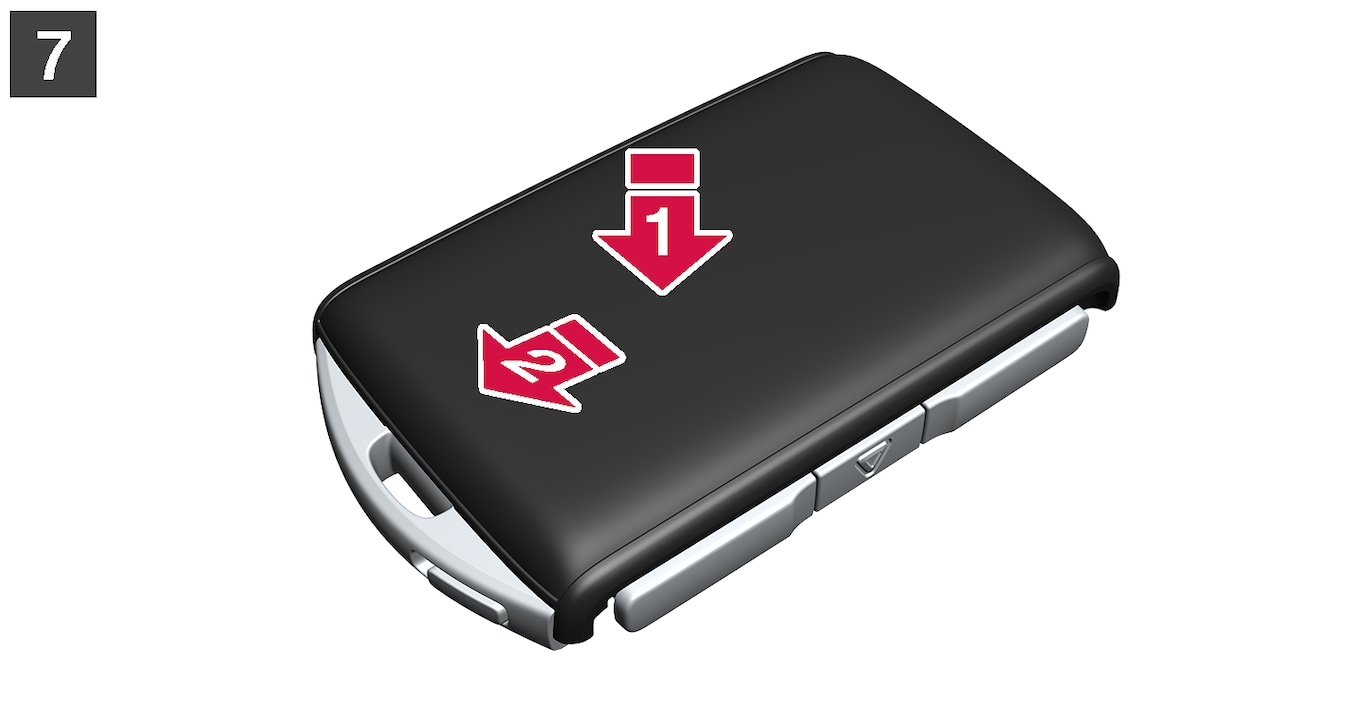

 Put the rear cover back into position and press it down until it clicks into place.
Put the rear cover back into position and press it down until it clicks into place.
 Slide the cover back.
Slide the cover back.
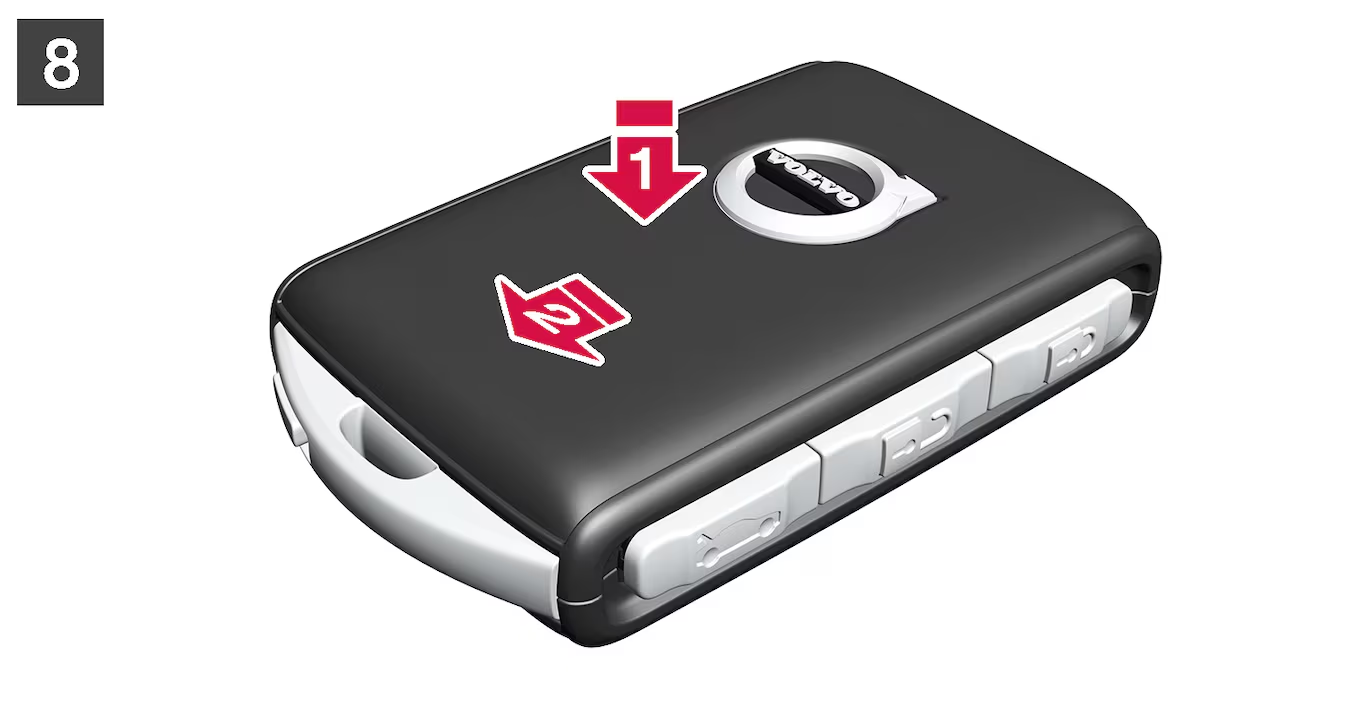

 Turn the key over and press the front cover down until it clicks into place.
Turn the key over and press the front cover down until it clicks into place.
 Slide the cover back.
Slide the cover back.
Warning
Make sure the battery is positioned correctly with the right polarity. If the key will not be used for a prolonged period of time, remove the battery to avoid battery leakage and damage. Wear protective gloves when handling damaged batteries, as batteries that are damaged or leaking can cause corrosive damage in contact with the skin.
- Keep batteries out of the reach of children.
- Do not leave batteries lying out where they could be swallowed by children or pets.
- Never disassemble, short-circuit or place a battery into open fire.
- Do not charge non-chargeable batteries. They could explode.
- Check products with batteries regularly for signs of damage.
Do not use the key if there is anything to suggest that the key or its battery has been damaged or is beginning to leak. Keep defective products out of the reach of children.
Important
Warning
California Proposition 65
Operating, servicing and maintaining a passenger vehicle can expose you to chemicals including engine exhaust, carbon monoxide, phthalates, and lead, which are known to the State of California to cause cancer and birth defects or other reproductive harm. To minimize exposure, avoid breathing exhaust, do not idle the engine except as necessary, service your vehicle in a well ventilated area and wear gloves or wash your hands frequently when servicing your vehicle. For more information go to www.P65Warnings.ca.gov/passenger-vehicle.